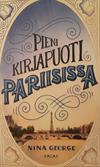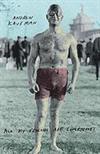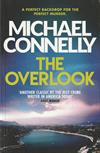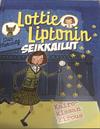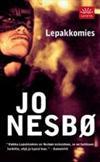
When We Were Orphans
4 journalers for this copy...
Picked this up to send to goatgrrl in New Westminster, BC - to say thanks for the many books she has sent me. Enjoy!
Journal Entry 2 by goatgrrl from New Westminster, British Columbia Canada on Thursday, June 24, 2004
 Received as an unexpected RABCK from crazy-book-lady in Toronto. You are a sweetiepie -- thank you so much!
Received as an unexpected RABCK from crazy-book-lady in Toronto. You are a sweetiepie -- thank you so much!
Journal Entry 3 by goatgrrl from New Westminster, British Columbia Canada on Thursday, March 17, 2005
 It's hard to know what to write about When We Were Orphans. For the first 3/4 of the book, I thought it was destined to become one of my top reads of 2005. In the first part of the novel, author Kazuo Ishiguro seemed to be laying the groundwork for so many interesting plot twists, I began to keep notes (see below) in order to keep track of the various clues and signals I thought I was picking up. It also became clear by about a third of the way into the book that protagonist Christopher Banks, a Shanghai-born Englishman who aspires to become a detective following his parents' disappearance, was being set up as a so-called "unreliable narrator" -- much like the character of Stevens in Ishiguro’s The Remains of the Day -- so I read along in morbid anticipation of the degradation of Banks' mental state, from calm lucidity to the delusional paranoia which seemed to be developing.
It's hard to know what to write about When We Were Orphans. For the first 3/4 of the book, I thought it was destined to become one of my top reads of 2005. In the first part of the novel, author Kazuo Ishiguro seemed to be laying the groundwork for so many interesting plot twists, I began to keep notes (see below) in order to keep track of the various clues and signals I thought I was picking up. It also became clear by about a third of the way into the book that protagonist Christopher Banks, a Shanghai-born Englishman who aspires to become a detective following his parents' disappearance, was being set up as a so-called "unreliable narrator" -- much like the character of Stevens in Ishiguro’s The Remains of the Day -- so I read along in morbid anticipation of the degradation of Banks' mental state, from calm lucidity to the delusional paranoia which seemed to be developing. How disappointing, then, when so many of these character developments and paths of intrigue lead precisely nowhere, and the book's surprising conclusion materialized from thin air -- with little apparent connection to any of the earlier plot signals. Among the many threads of the plot which were left dangling were the following: what was up with Sarah Hemmings remark in Part I that she "doesn't have so much time left"? What was Akira's servant Ling Tien really up to in his private quarters, and why was Akira so afraid of him? Was there really a "Municipal Council man" called Mr. Grayson, and was he really intent on coordinating a welcoming ceremony for Banks' parents twenty years after their disappearance? What was the "Inn of Morning Happiness", and why was Inspector Kung being held there? Why was Sarah so intent on getting Banks out of Shanghai? And was the Japanese soldier really Akira? It was infuriating not to be able to answer these questions at the end of the novel, and the fact that these plot twists never coherently connected to the book's main storyline lead me to a final assessment of this novel as somewhat ragged and unpolished.
On a more positive note, finer minds than mine reached a different assessment of this novel: Orphans was shortlisted for both the 2000 Whitbread Award and the Booker Prize. You can read Salon's review of the book here, the San Francisco Chronicle's here, and the Guardian's here. There's also a great dialogue about the book in Slate here.
SPOILER ALERT: I wrote the following notes while reading Orphans, as I kept losing track of certain aspects of the story (the reason for this was revealed as the novel progressed -- things were not always as they seemed).
Read the following only if you're prepared to read plot spoilers!
PART I
Part I of When We Were Orphans is set in London on July 24, 1930. There the reader is introduced to protagonist Christopher Banks, who -- in a first-person narrative -- recalls his move to London in the summer of 1923, following his graduation from Cambridge.
Through a former school chum, James Osbourne, Banks is introduced to members of the London upper crust, including the mysterious Sarah Hemmings, a socially ambitious orphan of approximately Banks' age -- 21 in 1923 -- who seems weirdly curious about the details of his upbringing in Shanghai. Banks also provides the first, skeletal details of his early childhood, his father's employment in Shanghai with the trading company Morganbrook & Byatt ("Byatt's"), and his mother and father's disappearance when he was ten years old. Finally, a chance encounter in a London bookshop with a Colonel Chamberlain prompts Banks to recall his voyage back from Shanghai to England, escorted by the Colonel, following his parents' disappearance.
Like Stevens, Ishiguro's butler protagonist from The Remains of the Day, the reader notices early on in Orphans the many things Banks doesn't notice, or at least downplays. When Banks quizzes Sarah Hemmings about her social ambitions, she remarks that she may feel as she does because she "doesn’t have so much time left" (p. 56). Banks doesn't ask her to elaborate. Similarly, in Part II of the novel, Banks' mother comments about his father's disappearance that "whatever happens ... you can be proud of him, Puffin. You can always be proud of what he’s done." (Top left: a Chinese opium smoker in 1909)
Journal Entry 4 by goatgrrl from New Westminster, British Columbia Canada on Thursday, March 17, 2005
 PART II
PART IIThe reader is told that Part II of Orphans takes place on May 15, 1931, and indeed Banks spends part of that day on an impromptu bus ride around London with Sarah Hemming. But again in Part II Banks is flashing back to an earlier period in his life. Through Banks' recollections, we learn that Byatt's main business line was the importation of Indian opium into China, and that -- notwithstanding that her husband was making his living in this way -- Banks' mother was virulently opposed to the opium trade. Banks' mother and father fight about his business activities throughout Part II, while his mother hosts a series of secret luncheons and meetings to campaign against opium importation.
Banks' childhood friendship with Shanghai neighbour Akira Yamashita is developed in Part II, and here emerges another interesting theme Banks chooses not to explore: Akira's morbid fascination with the activities of his family's Chinese servant, Ling Tien. We also meet for the first time the characters of "Uncle Philip", not a biological uncle but a Byatt's employee and one-time lodger with the Banks family (who subsequently switches allegiance to become an anti-opium activist), and Wang Ku, a Chinese warlord who may have provided protection to Byatt's opium shipments travelling along the Yangtze.
Finally, it is in Part II that Banks provides the details of his parents' disappearances. While his father's disappearance is oddly eclipsed by Banks' and Akira's obsessive plot to enter Ling Tien's private quarters, Banks' mother's disappearance several weeks later takes place right under his nose, with "Uncle Philip" seemingly centrally involved. (Photo: the Bund in Shanghai, 1925)
Journal Entry 5 by goatgrrl from New Westminster, British Columbia Canada on Thursday, March 17, 2005
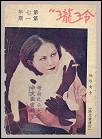 PART III
PART IIIPart III takes place nearly six years later, on April 12, 1937. Banks' aunt has died, and he has purchased a house in London with his inheritance. He has also adopted a twelve year old girl, Jennifer, and taken on a nanny, Miss Givens. Banks has enjoyed a number of successes as a detective, but he's feeling restless, and seems to believe he's receiving signals from others that he should return to Shanghai (the "signals" he perceives are an early example of Banks' tendency to interpret innocuous conversations and events in an unusual way). The final straw comes when he runs into Sarah Hemmings at a society wedding. Hemmings, now married to elderly statesman Sir Cecil Medhurst (whom she first met at the party she shamelessly crashed in Part I), is about to leave with Sir Cecil for Shanghai, where they plan to "help sort things out".
Banks makes a decision to travel to Shanghai himself, though his motivation for going is somewhat unclear. He has a vague notion about "slaying the serpent" (p. 172), referring to some kind of generalized evil, but isn't necessarily thinking about solving the now 20+ year old mystery of his parents' disappearance. He also refers -- obscurely -- to the fact he'll be working on a case with which he's been involved for "many years". (Photo: 1937 cover of Ling Lung, a Shanghai women's magazine.)
 PART IV
PART IVPart IV of Orphans is set in the Cathay Hotel, Shanghai, on September 20, 1937. Banks is being hosted at an event in the hotel ballroom by a Mr. McDonald of the British Consulate (who Banks is secretly convinced must be a "senior intelligence man", a curious deduction). Banks is now clearly working on a case in Shanghai he says he'd "formed a clear view of while still in England", however the reader isn't sure which case since Banks seems to have three in mind: (1) his parents' disappearance; (2) the "Yellow Snake" killings (a series of reprisal killings of informers by members of the Communist Party); and/or (3) the triple murder of three Chinese factory workers in a Shanghai boathouse. In any case, Banks seems to think all three cases are "relevant to the larger picture".
At p. 192 of the book, Banks describes -- for the first time -- the "conspiracy of denial" to which he's alluded in the past:
"I felt, for the first time since arriving in Shanghai, a wave of revulsion towards [the Shanghai international community]. It was not simply the fact of their having failed so dismally over the years to rise to the challenge of the case, of their having allowed matters to slip to the present appalling level with all its huge ramifications. What has quietly shocked me, from the moment of my arrival, is the refusal of everyone here to acknowledge their drastic culpability. During this fortnight I have been here, throughout all my dealings with these citizens, high or low, I have not witnessed -- not once -- anything that would pass for honest shame. Here, in other words, at the heart of the maelstrom threatening to suck in the whole of the civilized world, is a pathetic conspiracy of denial; a denial of responsibility which has turned in on itself and gone sour, manifesting itself in the sort of pompous defensiveness I have encountered so often. And here they now were, the so-called elite of Shanghai, treating with such contempt the suffering of their Chinese neighbours across the canal."
In Part IV, many things begin to unravel. Banks begins to speak of his encounters with Mr. Grayson, the "Municipal Council man" who approaches him on several occasions to begin planning of his parents "welcoming ceremony" (surely, the reader feels, this must be a delusion on Banks' part, the senior Bankses having been missing more than twenty years). In the meantime, Sarah and Sir Cecil have become big drinkers and gamblers (enjoying "the low-life", as Sarah says), their social graces completely eroded. (Photo: British volunteers in the Sino-Japanese war, 1937)
PART V
Part V begins nine days after Part IV, on September 29, 1937. Banks has another discussion with the mysterious Mr. Grayson, the municipal employee he finds so insistent on fine-tuning plans for his parents' welcoming ceremony. More strangely still, Banks meets up with Anthony Morgan, another former school friend, who leads him to the former Banks residence in Shanghai, now occupied by a Chinese family. Somehow the Chinese family understand Banks is to reclaim ownership, a proposition they greet with strange equanimity considering their claim that they are the legal owners of the house.
Part V begins nine days after Part IV, on September 29, 1937. Banks has another discussion with the mysterious Mr. Grayson, the municipal employee he finds so insistent on fine-tuning plans for his parents' welcoming ceremony. More strangely still, Banks meets up with Anthony Morgan, another former school friend, who leads him to the former Banks residence in Shanghai, now occupied by a Chinese family. Somehow the Chinese family understand Banks is to reclaim ownership, a proposition they greet with strange equanimity considering their claim that they are the legal owners of the house.
PART VI
As Part VI begins, Banks visits the "Inn of Morning Happiness", a hostel (it seems) where he speaks with former Shanghai municipal police inspector Kung, a detective at the time of Banks' parents' disappearance. Subsequently, he is summoned to meet Sarah Hemmings at the Cathay Hotel, who tells him she is leaving Shanghai and her marriage to Sir Cecil. Sarah proposes to Banks, and talks him into leaving Shanghai himself and meeting her in Macao, where she says there will be money waiting (odd, since she earlier indicated she didn't have enough money to return to England).
Banks, lighthearted at his decision to leave Shanghai with Sarah, goes on a last-minute spree to complete the steps of his investigation. Shanghai is now completely riven by the Sino-Japanese war, and Banks descends into the ruins of the city, searching desperately for the house where he believes his parents might yet remain captive. As he does so, he meets an injured Japanese soldier he immediately concludes -- all indications to the contrary notwithstanding -- is the grown-up Akira.
As Part VI begins, Banks visits the "Inn of Morning Happiness", a hostel (it seems) where he speaks with former Shanghai municipal police inspector Kung, a detective at the time of Banks' parents' disappearance. Subsequently, he is summoned to meet Sarah Hemmings at the Cathay Hotel, who tells him she is leaving Shanghai and her marriage to Sir Cecil. Sarah proposes to Banks, and talks him into leaving Shanghai himself and meeting her in Macao, where she says there will be money waiting (odd, since she earlier indicated she didn't have enough money to return to England).
Banks, lighthearted at his decision to leave Shanghai with Sarah, goes on a last-minute spree to complete the steps of his investigation. Shanghai is now completely riven by the Sino-Japanese war, and Banks descends into the ruins of the city, searching desperately for the house where he believes his parents might yet remain captive. As he does so, he meets an injured Japanese soldier he immediately concludes -- all indications to the contrary notwithstanding -- is the grown-up Akira.
Journal Entry 9 by goatgrrl from New Westminster, British Columbia Canada on Tuesday, March 22, 2005
Orphans is travelling back to Toronto as a RABCK (ironic, since it came to me as a RABCK from Toronto!). Thanks again to crazy-book-lady for sending me this book in the first place -- hope you will enjoy it, geishabird!
Arrived today - thanks goatgrrl! I managed to avoid reading most of your journal entries (thanks for the "spoilers" warning!) but will definitely review them once I've read the book...clearly this book had a great impact on you, whether for good or for bad (or some of both). I'm always interested in comparing reader responses...this is one of the cool advantages of BookCrossing! Thanks again for thinking of me...
Well. What does one say...
First of all: goatgrrl, I find myself agreeing with your take on this book. I have read and very much enjoyed three other Ishiguro novels but this one has left me not only scratching my head in confusion but feeling a bit cheated, to be honest. Since finishing it a few days ago, I've searched out other readers' responses to try and figure out if there were a lot of us who felt the same way - turns out there are.
While Ishiguro's writing is great and the first half of the book made for terrific reading, the second half takes a turn into a no-man's-land of distorted reality. Now, this isn't necessarily a bad thing. I enjoy a good unreliable narrator now and then and it's a device that can be used to superb literary advantage. But in this case...well, I'll be honest. I have no idea what's going on. Ambiguity is one thing - I fully accept ambiguity when it's done well and for a good reason. But as hard as I tried, I couldn't reconcile it in this case.
I came across the following comment in the Slate article goatgrrl links to:
"When We Were Orphans never lets you forget that the author is smarter than you and knows things neither you nor poor Christopher Banks can ever comprehend. But of course the game is rigged. This isn't a mystery. It's a hoax."
Sadly, I did feel like that at the end. The line between Banks' delusion and his reality was just too sloppily drawn to lead the book to any satisfying conclusion. How strange. I will be puzzling over this anomaly for some time!
First of all: goatgrrl, I find myself agreeing with your take on this book. I have read and very much enjoyed three other Ishiguro novels but this one has left me not only scratching my head in confusion but feeling a bit cheated, to be honest. Since finishing it a few days ago, I've searched out other readers' responses to try and figure out if there were a lot of us who felt the same way - turns out there are.
While Ishiguro's writing is great and the first half of the book made for terrific reading, the second half takes a turn into a no-man's-land of distorted reality. Now, this isn't necessarily a bad thing. I enjoy a good unreliable narrator now and then and it's a device that can be used to superb literary advantage. But in this case...well, I'll be honest. I have no idea what's going on. Ambiguity is one thing - I fully accept ambiguity when it's done well and for a good reason. But as hard as I tried, I couldn't reconcile it in this case.
I came across the following comment in the Slate article goatgrrl links to:
"When We Were Orphans never lets you forget that the author is smarter than you and knows things neither you nor poor Christopher Banks can ever comprehend. But of course the game is rigged. This isn't a mystery. It's a hoax."
Sadly, I did feel like that at the end. The line between Banks' delusion and his reality was just too sloppily drawn to lead the book to any satisfying conclusion. How strange. I will be puzzling over this anomaly for some time!
Journal Entry 12 by geishabird at Queen St. East in the Beaches in Toronto, Ontario Canada on Saturday, February 28, 2009
Released 15 yrs ago (2/28/2009 UTC) at Queen St. East in the Beaches in Toronto, Ontario Canada
WILD RELEASE NOTES:
WILD RELEASE NOTES:
Released as part of the "Never Judge A Book By Its Cover" challenge - Week 8.
Happy reading!
Released as part of the "Never Judge A Book By Its Cover" challenge - Week 8.
Happy reading!
Geishabird, you made my day! I found this book around 2:30 or thereabouts. I am truly looking forward to reading it.
Bless your little yellow ducky buttons, and thank you from the bottom of my heart!
Bless your little yellow ducky buttons, and thank you from the bottom of my heart!
"When We Were Orphans" is definately worth a read. I did enjoy the historical and cultural flavour of the book. I agree with goatgrrl and geishabird that there are real flaws throughout the novel. My biggest complaint is the protagonist, Christopher Banks. Did not like that fella at all. I couldn't tell if Ishiguro meant for the reader to feel this way? Banks was just not a believable character. Case in point: one would think that since he was orphaned at such an early age, the first thing he would do after setting foot in China, would be to find his parents. Then we find out that there will be a ceremony in his honour which will reunite him and his parents(??). This is mentioned several times, but he doesn't try to find them before the ceremony as he is too busy visiting and carrying on his vague investigations.
I did like the flashbacks of his boyhood in Shanghai. He was portrayed as having a wonderful creative childhood and this only child was very much loved and cherished by his mother. Why then did we find out at the end, that he didn't try very hard to find her? Even when he got to Hong Kong, he didn't go to see her until the third day there. Christopher got off too easily. He even gets a prefab daughter (whom he neglects of course) who offers to keep him in his dotage. No no no, that should never have been allowed to happen.
I did like the flashbacks of his boyhood in Shanghai. He was portrayed as having a wonderful creative childhood and this only child was very much loved and cherished by his mother. Why then did we find out at the end, that he didn't try very hard to find her? Even when he got to Hong Kong, he didn't go to see her until the third day there. Christopher got off too easily. He even gets a prefab daughter (whom he neglects of course) who offers to keep him in his dotage. No no no, that should never have been allowed to happen.
